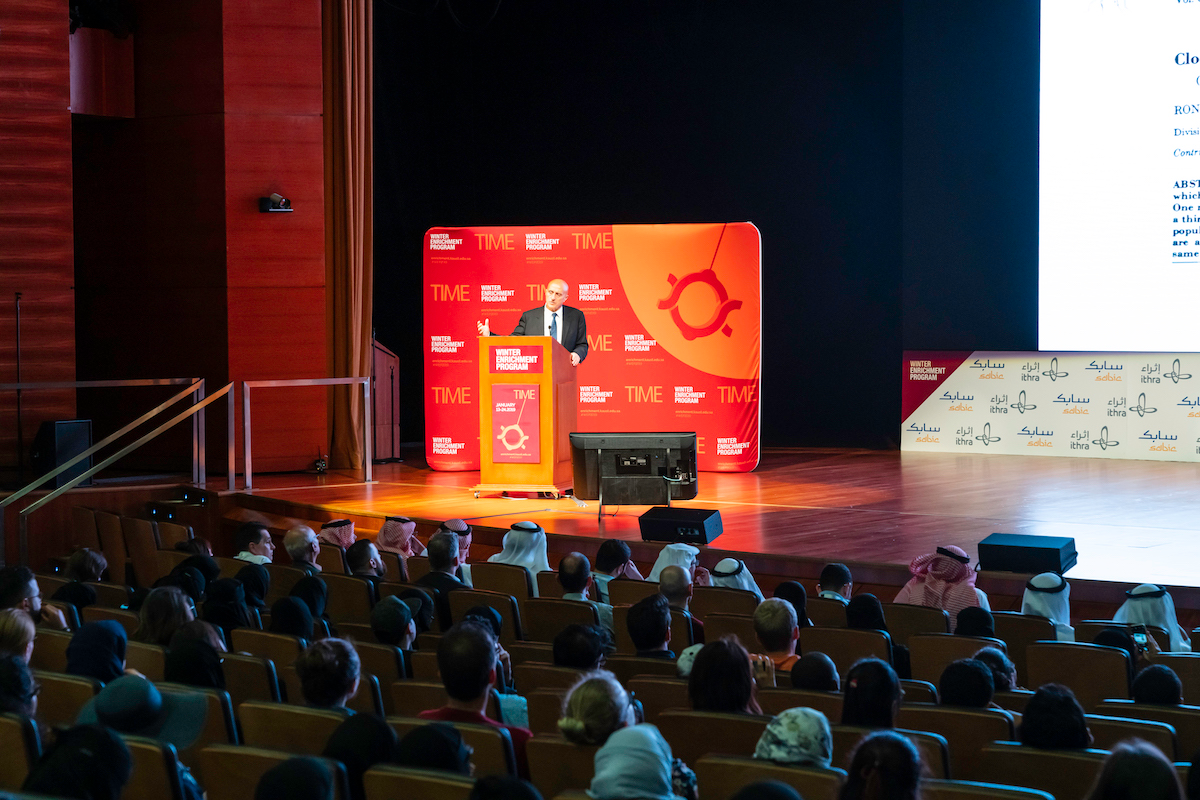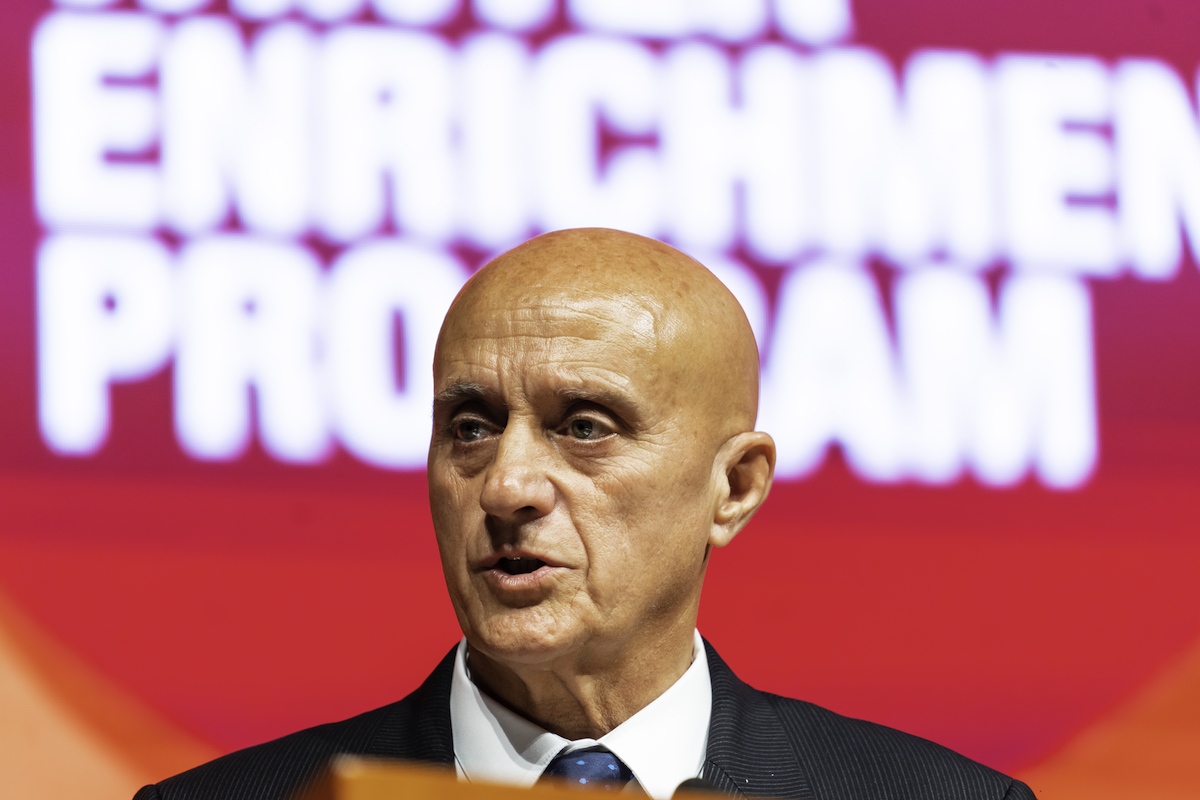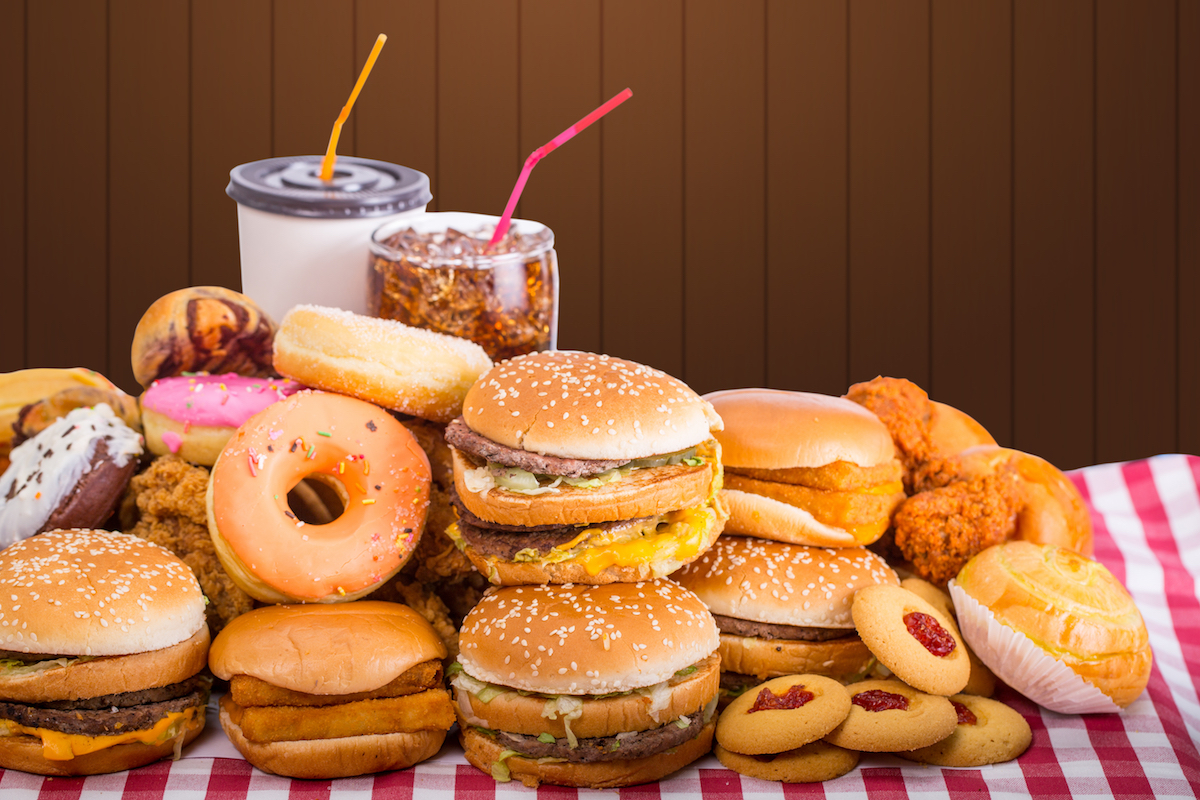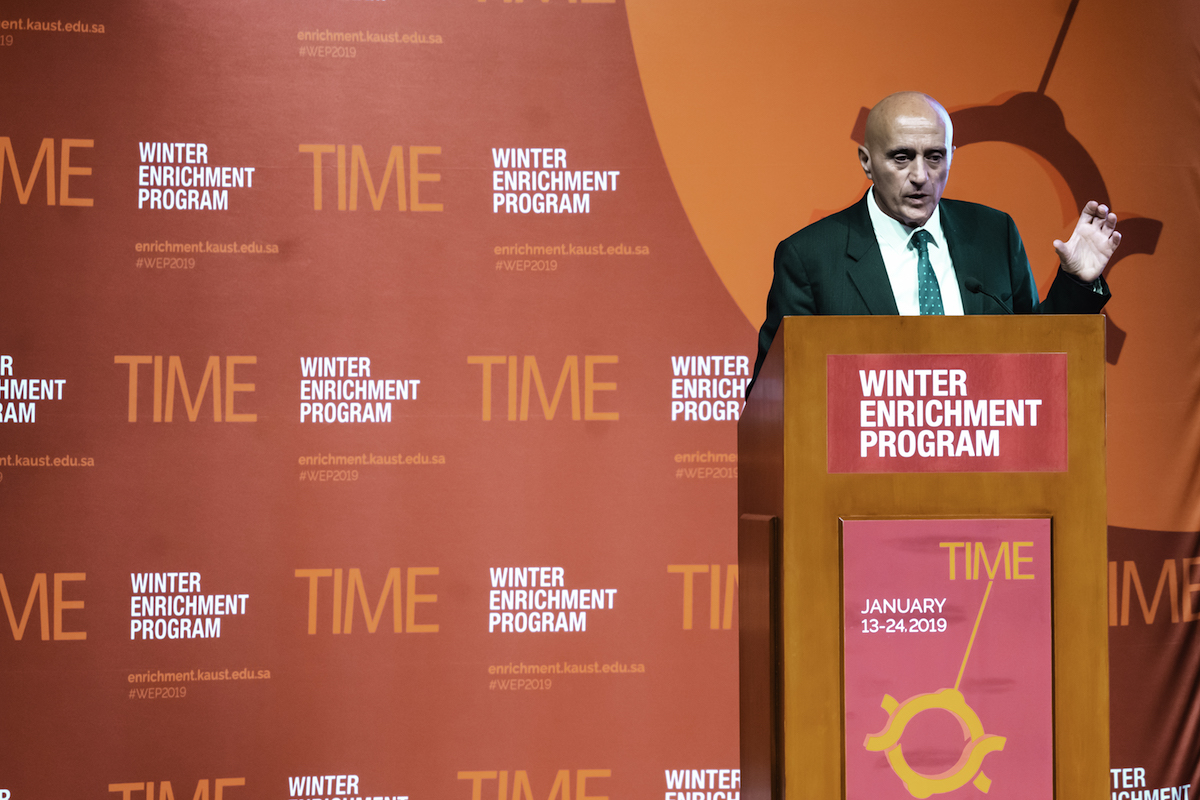You are what you eat and when

Dr. Paolo Sassone-Corsi, director at the Center for Epigenetics and Metabolism at the University of California, Irvine, spoke on campus on January 13 as part of the KAUST 2019 Winter Enrichment Program. Photo by Andrea Bachofen-Echt.
-By Tanya Petersen, KAUST News
We've all heard the saying "you are what you eat," but an increasing body of cutting-edge research seems to be revealing that we are also "when we eat." This all comes down to our circadian rhythms and the clocks we have in every organ, tissue and cell in our bodies.
Dr. Paolo Sassone-Corsi, director at the Center for Epigenetics and Metabolism at the University of California, Irvine, opened KAUST's 2019 Winter Enrichment Program on January 13, taking the audience on a journey through evolutionary time. He explained that our clocks have developed over billions of years in sync with the 24-hour rotation of our planet and cycles of day and night.
However, after around four billion years of evolution, which organized our physiology and circuits of biology to be a certain way, modern life introduced electric lights, television, airplanes and fast food.
Sassone-Corsi explained that these dramatic changes in just the last century—a drop in the ocean in biological time—have been like a stick of dynamite to our bodies. This is also why understanding circadian rhythms is an exploding area of research.
"This field of circadian rhythmicity has grown so much since I started in it 25 years ago and has attracted researchers in neurology, cell cycles, cancer, metabolism and so on. Everyone is converging on this field because of the central importance of these rhythms," Sassone-Corsi observed.

KAUST 2019 Winter Enrichment Program speaker Dr. Paolo Sassone-Corsi noted that the field of circadian rhythmicity has been growing rapidly since he began work in it 25 years ago. Photo by Andrea Bachofen-Echt.
Scientists now know that it is possible to uncouple the central and peripheral clocks in two key ways—through exercise and by when and how we eat. This is important because researchers found that when the alignment between our clocks is disrupted, there can be a significant impact on our health.
In time-restricted feeding experiments, researchers found that identical mice fed the same food and number of calories but at different times of day gained different amounts of weight.
"What happens at midnight is that you disrupt those beautiful cycles of metabolism that are prepared to digest food, not to get more food. You are putting those metabolic cycles, those genes, into a great level of stress. If you want that cheeseburger...please have it at midday [and] not at midnight," Sassone-Corsi said.

Dr. Paolo Sassone-Corsi, director at the Center for Epigenetics and Metabolism at the University of California, Irvine, told the KAUST audience during his 2019 Winter Enrichment Program keynote to eat cheeseburgers or other junk food at midday; this does not disrupt the body's metabolic cycle as much as eating junk food at midnight. Photo courtesy of Shutterstock.
Sassone-Corsi noted that the most exciting finding is that we can actually change our clocks.
"You have a new clock happening—you are not losing your normal circadian activity—you just change it, and all these genes now active under a high fat diet are the ones giving you inflammation and stress responses," he explained.
Sassone-Corsi and his team have a concept called "communicating clocks." They believe that all our clocks and cells talk to each other, and in a recent experiment, they wanted to find out if a change in one organ would affect the clock in another.

KAUST 2019 Winter Enrichment Program (WEP) speaker Dr. Paolo Sassone-Corsi told the audience during his WEP keynote that 'basically everything' in the human body is circadian. Photo by Andrea Bachofen-Echt.
This is important "because a cancer patient is going to get chemotherapy and this needs to be given at the right time of day," Sassone-Corsi said. "If you give it at the wrong time of day, it's not going to work as well. We have to take into account the fact that the liver is not going to be the normal liver. We need to study this in more detail, and I think the future is going to be chromo-pharmacology— pharmacology provided to people at the right time of day or night."
Going further, the researchers embarked on a large collaborative study with KAUST Professors Pierre Magistretti and Valerio Orlando, investigating the thousands of metabolites in each organ to understand how they change in response to a low fat or a high fat diet and how epigenetic functions help to regulate our well-being. Sassone-Corsi believes this is the future of personalized medicine.
"We can go and analyze bio-metabolomics by profiling everyone to understand how metabolites are changing in this modern society, and we know this has to do with communicating clocks," he said.
For Sassone-Corsi, this underscores how everything is circadian.
"All these beautiful hormones that you have heard about in your body are all circadian. You can look at the number of cells in the blood—they are oscillating—the numbers change during the day and the night. So what is really circadian and how much in your body is circadian? You'll be amazed—basically everything is," he concluded.
Related stories:
- What is consciousness?
- Rachel Sussman: All the time in the world
- A matter of time
-
Our biological clocks

